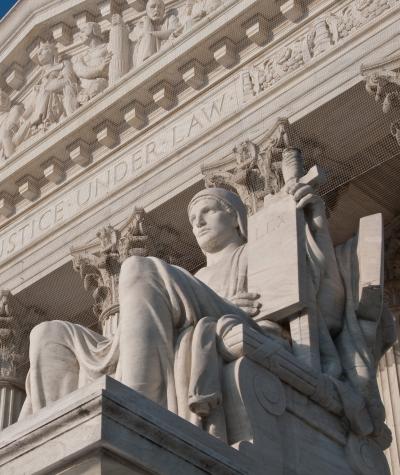The rule of law is a core American value – something we all treasure. But we are at a potential inflection point that needs to be recognized.
CLC’s Vice President, Paul Smith, recently wrote an op-ed in The Hill concerning the Supreme Court’s decision in June to block the citizenship question from being included in the upcoming 2020 U.S. Census. In this decision, Chief Justice John Roberts sided with the four liberal justices to hold that the Trump Administration was relying on a “contrived” rationale for including the question, that rationale being that the question was needed to enforce the Voting Rights Act (VRA).
On July 3rd, the Department of Justice and Department of Commerce seemed to have given up on including the question, as the census forms had passed their July 1st deadline to begin printing. However, the current administration has signaled in its public communications that it may not respect the court’s ruling. The President announced his intention to press forward with adding the question despite the ruling, and Attorney General William Barr said that they have a new approach that will “provide a pathway for getting the question on the census.”
This suggestion puts the Chief Justice in a tough position. Sooner or later, the Chief will have to make another ruling barring the attempt to keep the question on the census, or he will have confirmed the very impression that he was trying to avoid. His five-Justice ruling calling out the dishonest nature of Secretary Ross’s defense of the citizenship question will be for naught, and the court arguably will look more nakedly partisan than it ever has.
There is not plausible or lawful basis to keep the citizenship question on the census. The U.S. Supreme Court recognized that Secretary Ross was not telling the truth on his rationale for keeping the question on the ballot. As communication logs revealed, the question was not to be used for enforcement of the VRA, but so that the census would produce an undercount in the millions, a perceived political benefit for the Trump Administration.
CLC has opposed the addition of a citizenship question on the census from the day the administration announced its intention to add it because of its likely outcome of depressing response rates to the survey, which will deplete the minority representation.
In October 2018, CLC obtained documents through a Freedom of Information Act request that demonstrated that Commerce Secretary Wilbur Ross approached the Department of Justice (DOJ) and asked them to formally request that the 2020 census include a question about citizenship. Despite initial resistance, DOJ complied, but only after Secretary Ross sought the intervention of then-Attorney General Jeff Sessions.
CLC, along with more than 130 civil rights organizations, signed onto an amicus brief supporting the plaintiffs at the U.S. Supreme Court, arguing not only that the citizenship question was unnecessary, but that it would also severely undermine efforts to enforce the Voting Rights Act and cause substantial harm to the communities VRA is designed to protect.
Read about the actions CLC has taken to oppose the citizenship question, and read Paul Smith’s op-ed.
This post was written by Aaron Carrell, a 2019 CLC Hinckley intern, and student at the University of Utah.
